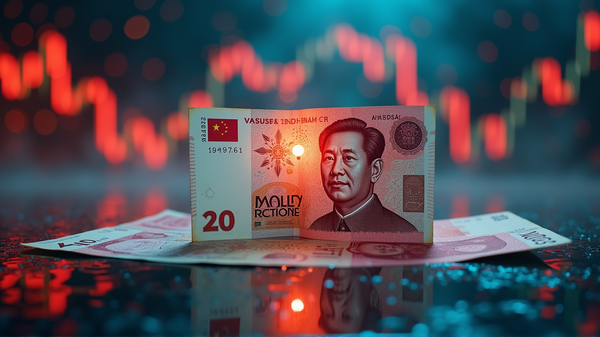Saudi Arabia to Loosen Export Restrictions as Oil Prices Surge to $110 Per Barrel
The global oil market has been thrown into a state of flux, with prices soaring to unprecedented levels. As the world grapples with this reality, Pierre Andurand, founder of Andurand Capital Management LLP, believes that Saudi Arabia will play a pivotal role in stabilizing the market. Andurand predicts that the oil-rich nation will ease its export restrictions when prices hit $110 per barrel, a move that could have significant implications for the global economy.
According to Andurand, the stockpiles of major economies are dwindling as countries are reluctant to purchase oil at the inflated prices. “They are hoping that the prices will come down, but that might not happen anytime soon,” he said. At some point, these countries will have no choice but to turn to Saudi Arabia and its allies for additional supplies.
Saudi Arabia, the world's largest oil exporter, has long been considered a stabilizing force in the global oil market. With its vast reserves and production capacity, the kingdom has the ability to influence prices and supply. Andurand believes that once Saudi Arabia begins to increase production and exports, the growth of other oil companies will slow down.
The kingdom has been under pressure to boost production as prices have surged, with calls from the United States and other major economies to help stabilize the market. However, Saudi Arabia has been cautious, wary of flooding the market and causing prices to collapse.
The decision to ease export restrictions is not one that will be taken lightly, and it will be based on a careful analysis of market conditions. “They will be looking at the supply and demand dynamics, as well as the geopolitical situation,” Andurand said.
Saudi Arabia has a history of stepping in to stabilize the market during times of volatility. In the past, the kingdom has increased production to make up for shortfalls in other parts of the world, such as during the Gulf War in 1991 and the Libyan Civil War in 2011.
However, the current situation is unique, with the global economy still reeling from the impact of the COVID-19 pandemic. The pandemic has led to a sharp drop in demand for oil, while at the same time disrupting supply chains and production.
As the world begins to recover, demand for oil is expected to increase, putting further pressure on prices. Andurand believes that Saudi Arabia’s intervention will be crucial in ensuring a stable and secure supply of oil.
“The kingdom has the capacity to bring balance to the market,” he said. “But it will require careful management and a willingness to work with other major producers.”
The decision to ease export restrictions will also have implications for the U.S.-Saudi relationship. The Biden administration has been pushing for an increase in production to help lower prices at the pump and ease inflationary pressures.
A move by Saudi Arabia to increase exports could be seen as a sign of goodwill, helping to strengthen ties between the two countries. However, it could also lead to tensions with other major producers, such as Russia, which has been resistant to increasing production.
The global oil market is a complex and interconnected system, and any changes in production or exports by a major player like Saudi Arabia will have ripple effects throughout the world. As prices continue to rise, all eyes will be on the kingdom to see how it responds.
Pierre Andurand’s insights provide a valuable perspective on the current state of the oil market and the potential role of Saudi Arabia in stabilizing prices. As the founder of a leading hedge fund specializing in oil and energy markets, Andurand has a deep understanding of the dynamics at play.
His prediction that Saudi Arabia will ease export restrictions at $110 per barrel is based on a thorough analysis of market conditions and the kingdom’s historical role in the oil market. It is a scenario that could have far-reaching implications for the global economy, and one that is being closely watched by investors, policymakers, and industry stakeholders around the world.
With the world still grappling with the impact of the COVID-19 pandemic and the transition to cleaner energy sources, the role of traditional oil producers like Saudi Arabia is more crucial than ever. Their ability to manage production and exports in response to market conditions will be a key factor in ensuring a stable and secure supply of oil in the years to come.
In conclusion, the global oil market is at a crossroads, with prices at record highs and major economies facing dwindling stockpiles. Saudi Arabia’s decision to ease export restrictions could be a game changer, helping to stabilize prices and ensure a secure supply of oil.
Pierre Andurand’s prediction underscores the importance of Saudi Arabia’s role in the global oil market and highlights the complex dynamics at play. As the world watches and waits, the kingdom’s actions will have lasting implications for the global economy and the future of energy.




